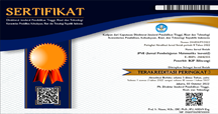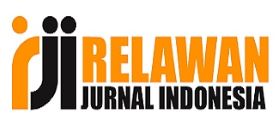SELF-EFFICACY GURU MATEMATIKA DALAM MENGHADAPI DINAMIKA PEMBELAJARAN DI MASA PANDEMI COVID 19
DOI:
https://doi.org/10.22460/jpmi.v5i2.10012Keywords:
Teacher Self-Efficacy, Covid-19 PandemicAbstract
The purpose of this research is to reveal and describe how the self-efficacy of mathematics teachers in Cianjur towards the dynamics of learning during the Covid-19 pandemic. The research was conducted in Cianjur Regency. The methodology used is descriptive quantitative method. The technique of collecting data is through questionnaires given by purposive and snowball sampling techniques. Data analysis uses descriptive statistics which do not aim to make conclusions about the entire population but rather help understand the details of the sample. The results showed that the overall self-efficacy of Mathematics Teachers in Cianjur was in the moderate category. Likewise, four of the seven constructs on teacher self-efficacy are Mathematics Knowledge Self-efficacy (KS), Instructional Self-efficacy (IS), Outcome Expectancy (OE) and Technology Literacy (TL) in the medium category. This means that teachers believe they have the ability to carry out their duties in the midst of a pandemic even though they still need development related to the four constructs. However, the other constructs namely Motivational Self-efficacy (MS), Engagement Self-efficacy (ES), and Disciplinary (as in classroom management) Self-efficacy (DS) are in the high category. This condition shows that teachers are able to provide motivation, students can be actively involved in learning and learning continues to be carried out conducive even though learning is carried out in the midst of a pandemic condition.
References
Allinder, R. M. (1994). The Relationship Between Efficacy and the Instructional Practices of Special Education Teachers and Consultants. Teacher Education and Special Education, 17(2), 86–95. https://doi.org/10.1177/088840649401700203
Andersen, A. M., Dragsted, S., Evans, R. H., & Sørensen, H. (2004). The Relationship Between Changes in Teachers’ Self-efficacy Beliefs and the Science Teaching Environment of Danish First-Year Elementary Teachers. Journal of Science Teacher Education, 15(1), 25–38. https://doi.org/10.1023/B:JSTE.0000031461.68912.3d
Andriani, W., Subandowo, M., Karyono, H., & Gunawan, W. (2021). Learning loss dalam pembelajaran daring di masa pandemi corona. Seminar Nasional Teknologi Pembelajaran, 1(1), 484–501.
Bakar, A. R., Mohamed, S., & Zakaria, N. S. (2013). How Efficacious are They? A Study of Malaysian Novice Vocational Teachers Sense of Efficacy. Proceeding of SITE 2013--Society for Information Technology & Teacher Education International Conference, 1234–1238. https://www.learntechlib.org/primary/p/48293/.
Bandura, A. (1986). Social foundations of thought and action: A social cognitive theory. In Social foundations of thought and action: A social cognitive theory. Prentice-Hall, Inc.
Bandura, A., Freeman, W. H., & Lightsey, R. (1999). Self-Efficacy: The Exercise of Control. Journal of Cognitive Psychotherapy, 13(2), 158–166. https://doi.org/10.1891/0889-8391.13.2.158
Bruce, C. D., Esmonde, I., Ross, J., Dookie, L., & Beatty, R. (2010). The effects of sustained classroom-embedded teacher professional learning on teacher efficacy and related student achievement. Teaching and Teacher Education, 26(8), 1598–1608. https://doi.org/https://doi.org/10.1016/j.tate.2010.06.011
Fackler, S., Malmberg, L.-E., & Sammons, P. (2021). An international perspective on teacher self-efficacy: personal, structural and environmental factors. Teaching and Teacher Education, 99, 103255.
Ghaith, G., & Yaghi, H. (1997). Relationships among experience, teacher efficacy, and attitudes toward the implementation of instructional innovation. Teaching and Teacher Education, 13(4), 451–458. https://doi.org/https://doi.org/10.1016/S0742-051X(96)00045-5
Kay, R. (1992). An Analysis of Methods Used To Examine Gender Differences in Computer-Related Behavior. Journal of Educational Computing Research, 8, 323–336. https://doi.org/10.2190/HPX9-9G0M-7UKJ-GBDX
Klassen, R. M., & Tze, V. M. C. (2014). Teachers’ self-efficacy, personality, and teaching effectiveness: A meta-analysis. Educational Research Review, 12, 59–76. https://doi.org/https://doi.org/10.1016/j.edurev.2014.06.001
Klassen, R. M., Tze, V. M. C., Betts, S. M., & Gordon, K. A. (2011). Teacher Efficacy Research 1998–2009: Signs of Progress or Unfulfilled Promise? Educational Psychology Review, 23(1), 21–43. https://doi.org/10.1007/s10648-010-9141-8
Lin, H.-L., & Gorrell, J. (2001). Exploratory analysis of pre-service teacher efficacy in Taiwan. Teaching and Teacher Education, 17(5), 623–635. https://doi.org/https://doi.org/10.1016/S0742-051X(01)00018-X
Maulyda, M. A., Erfan, M., & Hidayati, V. R. (2021). ANALISIS SITUASI PEMBELAJARAN SELAMA PANDEMI COVID-19 DI SDN SENURUS: KEMUNGKINAN TERJADINYA LEARNING LOSS. Journal of Elementary Education, 04, 3.
Midgley, C., Feldlaufer, H., & Eccles, J. (1989). Change in Teacher Efficacy and Student Self- and Task-Related Beliefs in Mathematics During the Transition to Junior High School. Journal of Educational Psychology, 81, 247–258. https://doi.org/10.1037/0022-0663.81.2.247
Mitzner, T. L., Boron, J. B., Fausset, C. B., Adams, A. E., Charness, N., Czaja, S. J., Dijkstra, K., Fisk, A. D., Rogers, W. A., & Sharit, J. (2010). Older adults talk technology: Technology usage and attitudes. Computers in Human Behavior, 26(6), 1710–1721. https://doi.org/https://doi.org/10.1016/j.chb.2010.06.020
Mukhtari, Z., Yuliani, A., Hendriana, H., Siliwangi, I., Jenderal, J. T., Cimahi, S., Tengah, C., & Cimahi, K. (2019). ANALISIS PENGARUH SELF EFFICACY TERHADAP KEMAMPUAN KONEKSI MATEMATIK SISWA SMP PADA MATERI BANGUN RUANG SISI DATAR. 2(5). https://journal.ikipsiliwangi.ac.id/index.php/jpmi/article/view/3096
National Council of Teachers of Mathematics (NCTM). (2000). Principles and standards for school mathematics. Va.: NCTM.
Nelson, S. L. (2007). Teacher efficacy and student motivation: A link to achievement in elementary mathematics. ProQuest.
Nurazizah, S., Nurjaman, A., Siliwangi, I., Terusan, J., Sudirman, J., Cimahi, J., & Barat, I. (2018). ANALISIS HUBUNGAN SELF EFFICACY TERHADAP KEMAMPUAN BERPIKIR KRITIS MATEMATIS SISWA PADA MATERI LINGKARAN. Jurnal Pembelajaran Matematika Inovatif, 1(3). https://doi.org/10.22460/jpmi.v1i3.361-370
PATRICIA T. ASHTON, RODMAN’B. WEBB, & NANCY DODA. (1983). A STUDY OF TEACHERS’ SENSE OF EFFICACY. https://eric.ed.gov/?id=ED231833
Pellegrino, J. W., & Hilton, M. L. (2013). Education for life and work: Developing transferable knowledge and skills in the 21st century. In Education for Life and Work: Developing Transferable Knowledge and Skills in the 21st Century. National Academies Press. https://doi.org/10.17226/13398
Rahim Mansyur, A. (2020). Education and Learning Journal Dampak COVID-19 Terhadap Dinamika Pembelajaran Di Indonesia. 1(2), 113–123. http://jurnal.fai@umi.ac.id
Rofiah, S. (2020). Perspektif Gender Siswa SMK Pokok Bahasan Barisan Dan Deret. JURNAL MATHEMATIC PAEDAGOGIC, 4(2), 91–98.
Ryu, M.-H., Kim, S., & Lee, E. (2009). Understanding the factors affecting online elderly user’s participation in video UCC services. Computers in Human Behavior, 25(3), 619–632.
Schwarzer, R., & Hallum, S. (2008). Perceived teacher selfâ€efficacy as a predictor of job stress and burnout: Mediation analyses. Applied Psychology, 57, 152–171.
Septiani, T., Hudanagara, M. A., Hendriana, H., & wahyu Anita, I. (2018). Pengaruh Self Confidence dan Self Efficacy Terhadap Kemampuan Berpikir Kreatif Matematis Siswa SMP. JPMI (Jurnal Pembelajaran Matematika Inovatif), 1(2), 185–192.
Steele, R., Lo, A., Secombe, C., & Wong, Y. K. (2009). Elderly persons’ perception and acceptance of using wireless sensor networks to assist healthcare. International Journal of Medical Informatics, 78(12), 788–801.
Sugiyono. (2017). Metode Penelitian Kuantitatif Kualitatif Dan R&D. Alfabeta.
Sukma, Y., & Priatna, N. (2021). Pengaruh Self-Efficacy terhadap Kemampuan Berpikir Kritis Siswa Pada Mata Pelajaran Matematika. Jurnal Ilmiah Soulmath: Jurnal Edukasi Pendidikan Matematika, 9(1), 75–88.
Sumartini, T. S. (2020). Self Efficacy Calon Guru Matematika. Mosharafa: Jurnal Pendidikan Matematika, 9(3), 419–428.
Thoonen, E. E. J., Sleegers, P. J. C., Peetsma, T. T. D., & Oort, F. J. (2011). Can teachers motivate students to learn? Educational Studies, 37(3), 345–360.
Tschannen-Moran, M., & Hoy, A. W. (2001). Teacher efficacy: Capturing an elusive construct. Teaching and Teacher Education, 17(7), 783–805.
Tschannen-Moran, M., & Hoy, A. W. (2007). The differential antecedents of self-efficacy beliefs of novice and experienced teachers. Teaching and Teacher Education, 23(6), 944–956.
Tschannen-Moran, M., Hoy, A. W., & Hoy, W. K. (1998). Teacher efficacy: Its meaning and measure. Review of Educational Research, 68(2), 202–248.
Vina Hari, L., Sylviana Zanthy, L., Hendriana, H., Siliwangi, I., Terusan Jendral Sudirman Cimahi, J., & Barat, J. (2018). PENGARUH SELF EFFICACY TERHADAP KEMAMPUAN BERPIKIR KRITIS MATEMATIK SISWA SMP. Jurnal Pembelajaran Matematika Inovatif, 1(3). https://doi.org/10.22460/jpmi.v1i3.435-444
Wardani, K. (2010). Peran guru dalam pendidikan karakter menurut konsep pendidikan Ki Hadjar Dewantara. Proceeding of The 4th International Conference on Teacher Education; Join Conference UPI &UPSI, 8–10.
Weiner, I. B., & Craighead, W. E. (2010). The Corsini Encyclopedia of Psychology, Volume 4 (Vol. 4). John Wiley & Sons.
Yoon, S. Y., Evans, M. G., & Strobel, J. (2012). Development of the teaching engineering self-efficacy scale (TESS) for k-12 teachers. 2012 ASEE Annual Conference & Exposition, 25–466.
Zee, M., & Koomen, H. M. Y. (2016). Teacher self-efficacy and its effects on classroom processes, student academic adjustment, and teacher well-being: A synthesis of 40 years of research. Review of Educational Research, 86(4), 981–1015.

















